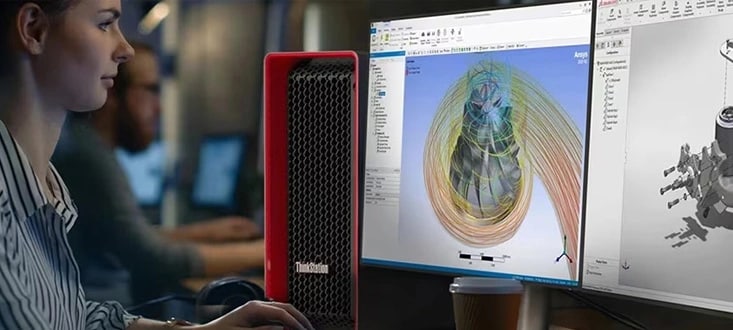-

 Accessibility
Accessibility -

 Contact Us
Contact UsSales:
Order Support:
-

 Rewards
Rewards -

 Account
Account -

 Cart
Cart -
Discover the latest PCs at Lenovo.com >
|
-
LenovoPRO Small Business Store
|
-

 Accessibility
Accessibility -

 Contact
ContactHelp placing an order
Business order help
Existing order help
-

 Rewards
Rewards -

 Account
Account -

 Cart
Cart
-
LenovoPRO Small Business Store
|
-

 Accessibility
Accessibility -

 Locator
Locator -

 Contact Us
Contact UsHelp placing an order
Business order help
Existing order help
-

 Rewards
Rewards -

 Account
Account -

 Cart
Cart
-
LenovoPRO Small Business Store
|
-

 Accessibility
Accessibility -

 Contact
ContactHelp placing an order
Business order help
Existing order help
-

 Rewards
Rewards -

 Account
Account -

 Cart
Cart
-
LenovoPRO Small Business Store
|
-

 Accessibility
Accessibility -

 Contact
ContactHelp placing an order
Business order help
Existing order help
-

 Rewards
Rewards -

 Account
Account -

 Cart
Cart
Intel Core vs. Intel Xeon Workstations
Two of the biggest names in high-powered PC workstation processors are Intel® Core™ and Intel® Xeon®. Both are highly advanced CPUs that are valued for their high core counts, impressive computational speeds and other top-end capabilities. So which chip should you choose?
Most PC workstations sold today feature one of these advanced Intel CPUs, whether it’s a Xeon W or Xeon E model or one of the high-speed Core i7 or Core i9 chips. In this article, we’ll list the features that make these particular processors so popular, and explain some key differences to help you decide which option belongs in your new workstation.
Continue reading for additional details to help you select either an Intel Core-based or Intel Xeon-based workstation. Or, if you’re still unfamiliar with the relative costs and features of Lenovo workstations, use these hyperlinks to take a quick look at our current workstation offerings:
Remember, too, that there’s more to Intel CPUs than just Core i7, Core i9 and Xeon chips. To learn about other high-end Intel Core products, visit “Intel Core i5 vs. Intel Core i7” or “Intel Core i7 vs. Intel Core i9.”
Comparing Intel Core and Intel Xeon processors for workstations
Both Core-based and Xeon-based workstations have lots to offer – you really can’t go wrong, regardless of what you choose. There are some critical differences, however.
Intel Core workstation CPUs
Intel calls Core i7 processors its "performance" line of CPUs while Core i9 chips are aimed at processor “enthusiasts.” With a greater number of cores, higher frequencies, and larger cache allotments than the value-oriented Core i3 and mainstream Core i5 series, Core i7 and Core i9 chips are fast and responsive enough to support today's most demanding business and professional software.
Table 1 reviews the specifications (high-level) of 10th Gen Intel Core i7 processors as of late 2020.*
Table 1
High-level technical specifications of 10th gen Intel Core i7 CPUs (Sept. 2020)
| Cores | Max. Turbo Freq. | Overclocking | ECC Memory | |
|---|---|---|---|---|
| Intel Core i7 Laptops |
4/8 |
3.80-5.10 GHz |
Select SKUs |
No |
| Intel Core i7 Desktops |
8 |
4.50-5.10 GHz |
Select SKUs |
No |
*Available and announced products. Some Intel processor SKUs may not be available on Lenovo PCs. Always check the listed specs of any system you buy.
Table 2 reviews the specifications (high-level) of 10th Gen Intel Core i9 processors as of late 2020.*
Table 2
High-level technical specifications of 10th gen Intel Core i9 CPUs (Sept. 2020)
| Cores | Max. Turbo Freq. | Overclocking | ECC Memory | |
|---|---|---|---|---|
| Intel Core i9 Laptops |
8 |
5.30 GHz |
Select SKUs |
No |
| Intel Core i9 Desktops |
10 |
4.60-5.30GHz |
Select SKUs |
No |
*Available and announced products. Some Intel processor SKUs may not be available on Lenovo PCs. Always check the listed specs of any system you buy.
Core CPUs lack Xeon's support for error-correcting memory (see below). However, for advanced users, Core i7 and Core i9 CPUs can be overclocked. When conditions are right, overclocking allows the user to temporarily run the processor at higher-than-rated speeds. Xeon processors don’t have this feature.
Intel Xeon workstation CPUs
Intel Xeon processors offer similar frequencies and cache sizes as top-rated Core models. However, the Xeon line has much higher maximum core counts. NOTE: This discussion is limited to Xeon chips built for the laptop/desktop/workstation market; we’re excluding embedded and server-grade Xeon products.
Table 3 lists the top-level specifications of consumer-level Intel Xeon processors for workstations, laptops and desktops as of late 2020.*
Table 3
High-level technical specifications of consumer-level Intel Xeon workstation CPUs (Sept. 2020)
| Cores | Max. Turbo Freq. | Overclocking | ECC Memory | |
|---|---|---|---|---|
| Intel Xeon W Laptops |
6-8 |
5.10-5.30 GHz |
No |
Yes |
| Intel Xeon W Desktops |
28 |
3.80 GHz |
No |
Yes |
| Intel Xeon W Workstations |
4-28 |
3.90-5.30 GHz |
No |
Yes |
| Intel Xeon E Laptops |
6-8 |
4.40-5.00 GHz |
No |
Yes |
*Available and announced products. Some Intel processor SKUs may not be available on Lenovo PCs. Always check the listed specs of any system you buy.
Another way Xeon workstation CPUs are different from their Core workstation counterparts is Xeon’s support for Error Correcting Code (ECC) memory.
ECC memory – typically a server-grade feature – makes Xeon chips especially valuable in workstations used for demanding, mission-critical calculations. ECC memory helps find and fix 99.999% of soft memory errors before they cause problems. This can greatly reduce data corruption and work-destroying system crashes.
If you’re unsure about which processor is inside a particular Lenovo workstation, it’s easy to get the answer. Start by examining the specs provided under each product image; the CPU options will be listed there. Or you can follow any of the “Learn More” links for full details about each PC you’re considering.
Benefits of Xeon and Core workstations
The next obvious question is cost. From a strictly dollars and cents perspective, Core processors typically cost less per core than Xeon processors with similar speeds. But take a deeper look and you'll find that each chip has clear benefits for different workstation user types:
-
Why buy an Intel Xeon workstation?
Intel Xeon workstations are valued by users who run advanced CAD applications, work with sensitive financial data, or operate in environments where system crashes can have a big impact on the business's bottom line. These users can’t tolerate sudden shut-downs and so-called "silent" data corruption errors. For them, ECC memory support delivers a level of reliability and peace-of-mind that makes Xeon CPUs worth the additional incremental cost.
-
Why buy an Intel Core workstation?
Intel Core workstations (whether Core i7- or Core i9-based) are ideal for those who need Xeon-like speed and responsiveness to run the same or similar compute-intensive applications, but who may have tighter budgets. They’re also good for users who want the ability to overclock their CPU when operating conditions support it. For all but the most sensitive workloads, image rendering or data analysis, a Core-based workstation is a strong choice.
Xeon workstation CPUs also feature some server-style availability and reliability features that might give them a leg-up on Core models for certain tasks. Meanwhile, Core workstation CPUs typically include integrated graphics options that aren’t always available in the Xeon line.
Ready to make your selection? Check out our popular Lenovo mobile workstations to find the advanced Intel Core or Intel Xeon processor option that's right for you.
Intel, Intel Core and Intel Xeon are trademarks of Intel Corporation or its subsidiaries in the U.S. and/or other countries.



